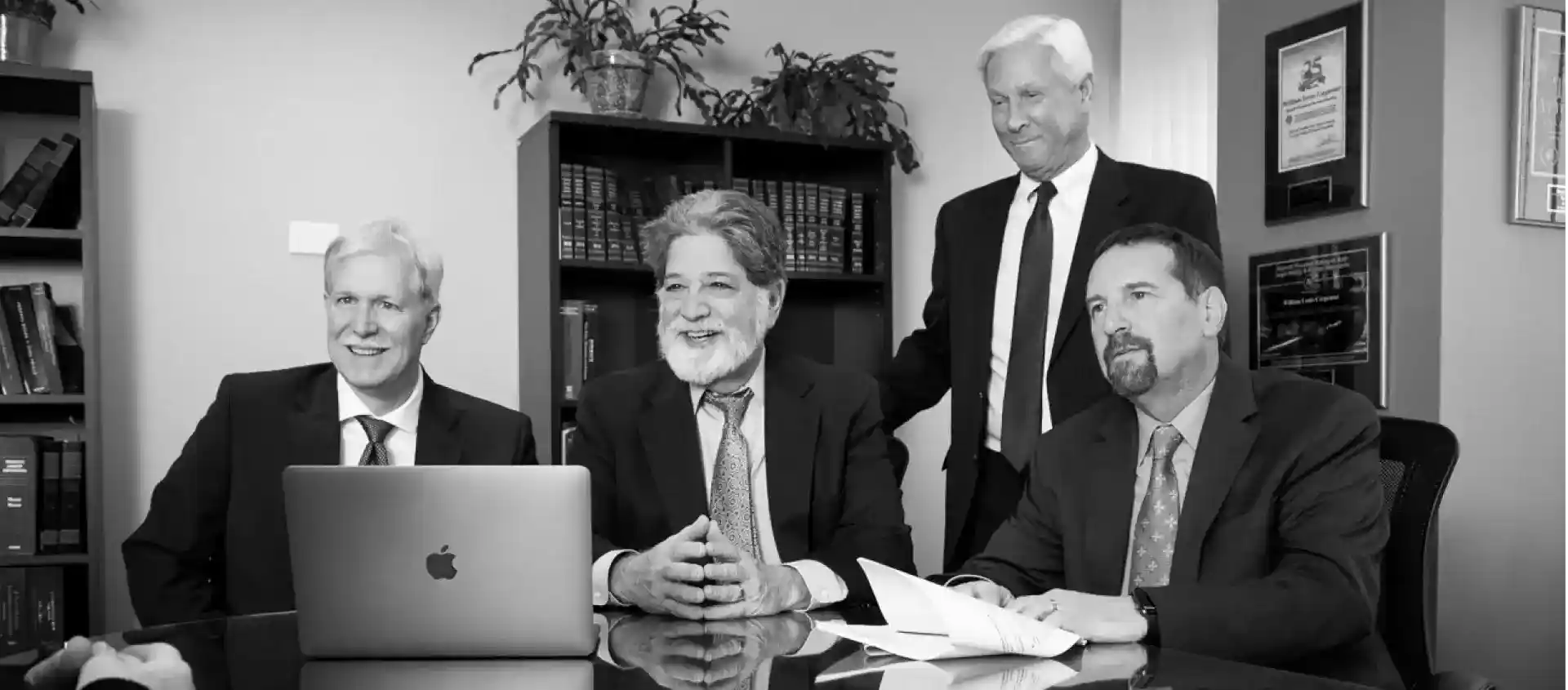
Wrongful death lawsuits differ in numerous ways from other types of personal injury claims. Calculating damages for a wrongful death settlement can be rather complex. That is one reason why it’s important to consider hiring a skilled Colorado wrongful death claim lawyer to represent your family.
The attorneys at Gerash Steiner Blanton, P.C. have decades of experience assisting clients who’ve undergone the traumatic experience of losing a loved one due to another party’s negligence. We understand what a stressful and emotional time this is for your family. We can help you pursue compensation from the parties responsible for your loved one’s death.
What Is Considered a Wrongful Death?
Before calculating damages for a wrongful death settlement, you need to prove that you have a viable wrongful death claim. If a family member passes away due to the negligence or misconduct of another party, certain surviving family members may be eligible to file a wrongful death lawsuit against the responsible party. Colorado’s Wrongful Death Act has another stipulation—to bring a wrongful death claim the deceased person would have needed to possess the right to pursue a personal injury claim had they survived.
There may be pending criminal charges filed against the defendant. A criminal case is different from the civil case you would be filing. These two case types are entirely separate and have different standards of proof. Some people mistakenly believe that they are prohibited from filing a wrongful death lawsuit if criminal charges are filed. However, that is not true.
Many different circumstances can lead to a wrongful death lawsuit in Colorado. Some of the most common events include:
- Motor vehicle accidents,
- Truck accidents,
- Motorcycle accidents,
- Bicycle or pedestrian accidents,
- Medical malpractice,
- Defective products,
- Slip and falls,
- Swimming pool accidents, and
- Criminal activity.
It’s also possible that more than one party could be responsible for your family member’s death. That means you may be pursuing a claim against multiple defendants. For example, your loved one was shot and killed at a local mall. The mall has had several reported similar crimes in the exact location. Your family might have a claim against the shooter as well as the mall for negligent security.
Factors that Impact Calculating Damages for a Wrongful Death Settlement
Calculating damages for a wrongful death settlement can be complicated when you don’t understand how the claims process works. Numerous factors can impact the value, which is why you need an experienced lawyer on your side. Placing a monetary value on someone’s life is always challenging. While no amount of compensation will bring your loved one back, there are certain factors that legal professionals use when trying to come up with a figure. Some of the most common factors include:
- The deceased’s age at the time of death;
- The earning capacity of the deceased;
- The value of lost benefits, such as health insurance, pension, etc.;
- The deceased’s state of health before they passed;
- The deceased’s age;
- The educational level and training of the deceased;
- Their income at the time of death;
- Their medical bills and other related expenses; and
- Funeral and burial expenses.
By inputting various factors such as the deceased person’s age, income, and life expectancy, a wrongful death settlement calculator can assist in determining a fair compensation amount for the family of the deceased in a wrongful death settlement. When calculating the total amount, you do not make up random figures that you feel are appropriate. Your demand for compensation must include objective evidence. You can strengthen your case by relying on experts who know how to calculate these figures. Economists and other experts have the necessary skills and experience to determine the fair value of these factors, such as the amount of future benefits your family is losing, or the deceased’s earning capacity.
What are Economic and Non-Economic Damages in a Wrongful Death Case?
Understanding the categories of damages in a wrongful death claim is important because there are limits that you need to be aware of. Potentially recoverable economic damages in a Colorado wrongful death case include:
- Medical bills for the deceased;
- Loss of the deceased’s earnings;
- Funeral and burial expenses;
- Loss of retirement and insurance benefits;
- Loss of deceased’s services; and
- Property damage.
Non-economic damages include items such as:
- Loss of consortium and
- Family members’ pain and suffering.
Colorado does not cap the amount of economic damages you can receive. However, the law limits non-economic damages. The maximum amount will vary depending on the date of your wrongful death claim. Wrongful death claims for relief that accrue on or after January 1, 2020, and before January 1, 2022, are limited to a maximum of $613,760. For all claims for relief that accrue on or after January 1, 2022, and before January 1, 2024, the adjusted maximum is $642,180.
Cases involving medical malpractice claims will have a different compensation cap. If your family member’s death resulted from a “felonious killing,” then the cap on non-economic damages will not apply under Colorado Revised Statutes §13-21-203(1). Understanding the maximum potential compensation in a wrongful death case is crucial. You need to speak with an experienced wrongful death claim lawyer in Colorado who understands the applicable damages limit for each type of claim.
How Are Wrongful Death Settlements Paid Out?
Under Colorado law, wrongful death settlement payouts go to the deceased’s surviving spouse and children first. Colorado’s Wrongful Death Act requires that a judgment in a wrongful death case must be apportioned. This statute provides that wrongful death settlements are dispersed in the same manner as real estate is divided under Colorado’s succession and estate distribution laws.
Wrongful death settlements dispersed following a wrongful death claim are paid according to Colorado law. Colorado law requires compensation for a wrongful death lawsuit to be split between the deceased’s surviving spouse and children, if applicable. If the deceased has no surviving children or spouse, the deceased’s parents will receive any compensation for the wrongful death claim. If the deceased has no surviving spouse, children, or parents, then their designated beneficiary will receive any compensation from a wrongful death claim.
Wrongful Death Claim in the First Year by Surviving Spouse
Only the surviving spouse, if there is one, may pursue wrongful death litigation during the first year following the decedent’s death. In cases where the surviving spouse brings the action, they do so in an individual capacity and on behalf of any of the deceased’s children or designated beneficiary. A surviving spouse seeking recovery in the first year must distribute the proceeds as directed by state law. The lawyer or insurance company possessing the funds may distribute the entire award to the surviving spouse. However, neither the lawyer nor the insurance company is required to oversee the distribution.
Wrongful Death Claim During the Second Year
During the second year after the decedent’s death, the spouse, the heirs, or the designated beneficiary may bring a wrongful death claim. These parties may file their claims separately or together. The same rule regarding the distribution of the judgment applies to awards received by parties that file in the second year after death. A surviving spouse is still entitled to a share of the award.
Are Wrongful Death Settlements Taxable?
According to current Internal Revenue Service (IRS) laws, most settlements for wrongful death claims may not be taxable, provided the settlement is for compensatory damages. Economic damages and non-economic damages are not taxable under IRS rules. There are several instances where a portion of your settlement could be taxable, though. One example is punitive damages. The IRS notes that punitive damages should be reported as “other income” on Form 1040. Your attorney can explain if any portion of your wrongful death settlement could be taxable.
Contact a Wrongful Death Claim Attorney Today
Pursuing a wrongful death claim in Colorado can be quite complicated, especially when calculating damages for a wrongful death settlement. There are special laws on who can file and within what timeframe. Figuring out all this on your own can be confusing. Don’t try to handle this alone, especially when your family is grieving. Instead, let the professional legal team at Gerash Steiner Blanton, P.C. assist you. Our attorneys have over 100 years of combined experience representing injured clients and families who have lost loved ones due to another party’s negligence.
We understand what a terrifying time this is for your family. It would help if you had someone to protect your family’s rights and fight to hold the liable parties financially responsible. Contact our office today to schedule an initial consultation. Let us handle the challenging legal aspects of your loved one’s death while you concentrate on your family’s needs and grieving the loss of your family member.

